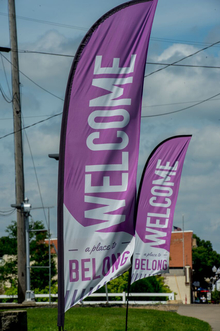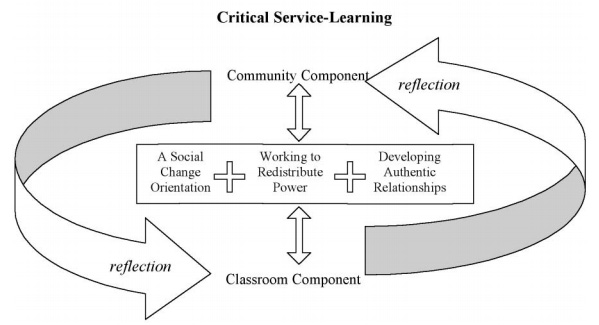Many community members can recall a time when they have been asked by an organization or group to take a survey or participate in a forum to share their opinion on a certain issue only to never be consulted again. This last-minute and transactional approach to civic engagement has been the norm for a long time.
Fortunately, this has been changing with organizations becoming more intentional in building equitable and inclusive approaches to community projects and efforts. How can we take it a step further and critically engage in meaningful ways that support sustainable change?
To deepen your civic engagement efforts, consider using these three aspects of University of Minnesota Associate Professor Dr. Tania D. Mitchell’s critical service-learning model:
- A social change orientation — Ask yourself why you want to engage with community? Consider how your “why” can address more than an isolated need or incident. How can your engagement efforts support working toward sustainable change instead of a temporary fix?
- Working to redistribute power — What are some of the power dynamics in your civic engagement relationships? Being in control of the grant money or being a well-known organization in community can create differences in power that affect the depth of engagement efforts. It may seem like we are working from outside of the community rather than in partnership. Consider moving from language of “helping” or “giving” to “supporting” and “collaborating.”
- Developing authentic relationships — Consider the relationships you are building as you engage in community – are the relationships benefiting both parties? Are they relationships of transaction, where you only engage when you need something from them? Authentic relationships are mutually beneficial and are based on shared connections and values. These relationships are crucial to sustaining engagement in communities.
Two Models by T. D. Mitchell, 2008, Michigan Journal of Community Service Learning, 14(2), 50.
Using this model in the context of civic engagement can guide us in critical reflection of past and current engagement efforts to be more effective in our work and deepen our relationships with the communities we partner with.
Continue deepening your understanding of what Dr. Mitchell names as critical and liberatory community engagement and by reading her short biography and list of publications on her Department of Organizational Leadership, Policy, and Development profile.



